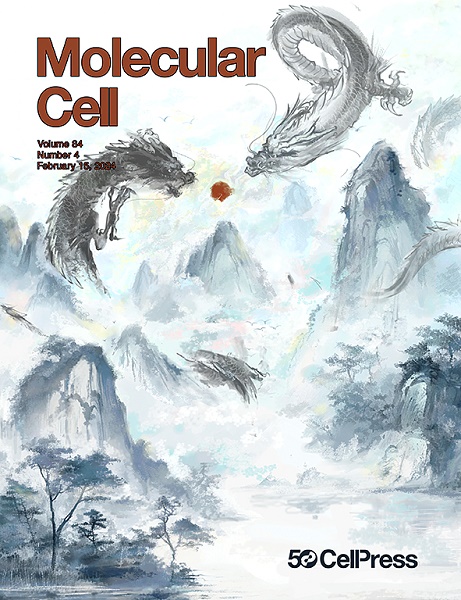Hypoxia-induced phase separation of ZHX2 alters chromatin looping to drive cancer metastasis
IF 14.5
1区 生物学
Q1 BIOCHEMISTRY & MOLECULAR BIOLOGY
引用次数: 0
Abstract
Hypoxia and dysregulated phase separation can both activate oncogenic transcriptomic profiles. However, whether hypoxia regulates transcription-associated phase separation remains unknown. Here, we find that zinc fingers and homeoboxes 2 (ZHX2) undergoes phase separation in response to hypoxia, promoting their occupancy on chromatin and activating a cluster of oncogene transcription that is enriched by metastatic genes distinct from the targets of hypoxia-inducible factor (HIF) and pathologically relevant to breast cancer. Hypoxia induces ZHX2 phase separation via a proline-rich intrinsically disordered region (IDR), enhancing phosphorylation of ZHX2 at S625 and S628 that incorporates CCCTC-binding factor (CTCF) in condensates to alter chromatin looping, consequently driving metastatic gene transcription and cancer metastasis. Our findings provide significant insight into oncogene activation and suggest a phase-separation-based therapeutic strategy for cancer.

求助全文
约1分钟内获得全文
求助全文
来源期刊

Molecular Cell
生物-生化与分子生物学
CiteScore
26.00
自引率
3.80%
发文量
389
审稿时长
1 months
期刊介绍:
Molecular Cell is a companion to Cell, the leading journal of biology and the highest-impact journal in the world. Launched in December 1997 and published monthly. Molecular Cell is dedicated to publishing cutting-edge research in molecular biology, focusing on fundamental cellular processes. The journal encompasses a wide range of topics, including DNA replication, recombination, and repair; Chromatin biology and genome organization; Transcription; RNA processing and decay; Non-coding RNA function; Translation; Protein folding, modification, and quality control; Signal transduction pathways; Cell cycle and checkpoints; Cell death; Autophagy; Metabolism.
 求助内容:
求助内容: 应助结果提醒方式:
应助结果提醒方式:


